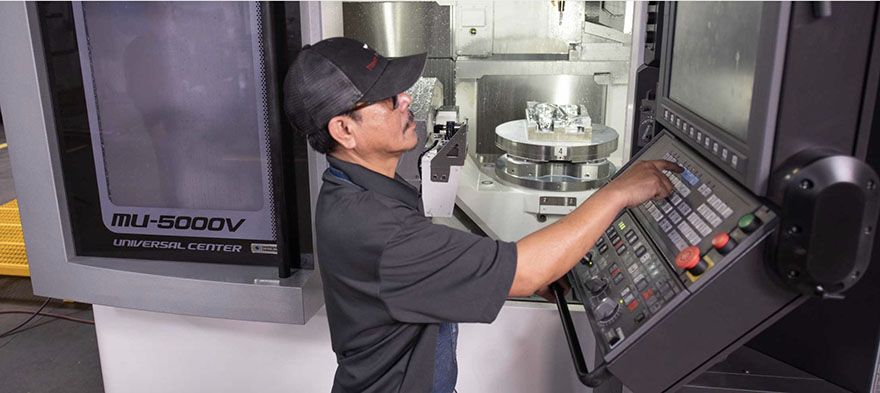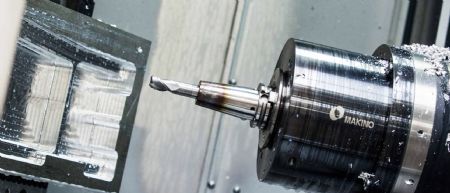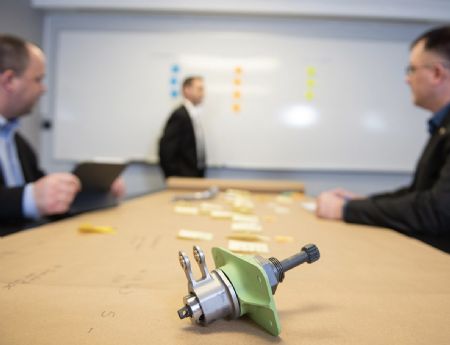
US-based
Trinity Precision Inc, an aerospace parts supplier, has built a business in Kansas on these three pillars: people, process and principle. Ever since founders David May, Steve Ford, Dave Tice and Chris VanNover opened the company’s doors in 2014, they have stood by them. Vericut toolpath simulation and optimisation software from
CGTech has been there every step of the way.
Chris VanNover, Trinity Precision’s vice president of operations, said: “When we started Trinity, it was important that we establish the foundations needed to assure success for the company and its employees. One of these was the use of robust programming technology, which includes accurate, productive toolpath simulation. Vericut has filled that role since day one.”
CNC programming manager Merritt Stuever has been there for the past five years. Like Mr VanNover and the rest of the company’s management team, he also has great respect for Vericut — including his time at Trinity Precision, he has been using the product for nearly two decades. He said: “After running a program through Vericut, you are not only assured that the ‘G-code’ is consistent with a good part, but you also eliminate any chance of a crash. Considering the cost of replacing a spindle and the machine downtime that comes with it, it is a simple choice. Vericut is a no-brainer.”

To say that Trinity Precision is heavily into aerospace work is an understatement. Its customer list includes Boeing Commercial and Defense, Northrop Grumman, Gulfstream, Textron Aviation, and more OEMs with zero tolerance for deviation in part quality or delivery times. As such, strict adherence to established processes is critical, along with its reliance on sound programming procedures.
Mr VanNover explained that Trinity Precision president David May purchased an existing machine shop as a starting point for the new business. The previous owners were using a well-known brand of CAM software and had a single seat of CATIA (Computer Aided Three-Dimensional Interactive Application) supplied by
Dassault Systèmes that was gathering dust. Mr May and his management team hit the reset button.
Lots of flexibilityHe said: “We knew from previous experience that implementing change once you have reached a certain size can be difficult, so we took the opportunity early on to build everything from the ground up. We stayed with CATIA because that is what most of our customers require and invested in CGTech’s Vericut. It does everything that we need it to do, and seeing as we were looking forward to a lot of new CNC equipment back then, we also liked the fact that we could develop our own machine tool models. It gives you lots of flexibility.”
Today, Trinity Precision features 32,000ft
2 of manufacturing space and a portfolio of advanced CNC machinery. It has also enjoyed four-fold revenue increase since those early days. Mr VanNover noted that, like most in the aerospace industry, the pandemic-related slowdown in commercial aviation gave them ‘a pretty significant haircut’ over the past two years, but that tide appears to be turning, and Trinity’s 70-plus employees stand ready for renewed growth.
As noted previously, however, that growth depends on robust processes, something Mr Stuever and the rest of the engineering team spend their days developing. Every CNC machine tool has a standard tool list, greatly reducing set up time and eliminating the chance that an operator will place a cutter in the wrong position.

In addition, all feedrates, cutting speeds, and other machining parameters are similarly standardised within CATIA. Offline pre-setting is used, and many of the machine tools employ tool breakage detection for automated operation. Every job goes through Vericut before leaving the programming office, a requirement that Mr Stuever noted has saved the company countless hours of re-work and even scrap.
Mr Stuever continued: “We are mostly a high-mix, low-volume shop, so often, at times, we might have a couple of dozen new part numbers in a week. Since none of us can read and visualise hundreds of thousands of lines of G-code, Vericut is the best way to check for interference, gouging, left-over material, and any of the other everyday programming scenarios that can lead to a bad part or worse. Since you know the software will catch things like that, it makes the programming process both easier and faster.”
Mr Stuever is also quite pleased with CGTech’s support level. He has taken several classes over the years and attended multiple VUE sessions (Vericut Users’ Exchange). Because of this, he has come to know many of the people in the software developer’s Irvine headquarters. He added: “They are very helpful and always take the time to make sure any issues or needs are resolved. As far as technical support goes, there are only two companies that I rank extremely high. CGTech’s one of them.”
Mr VanNover concluded: “The rest of the management team and I have worked in shops where machinists were out there changing programs, selecting their own tools, and pretty much doing their own thing, but you just cannot operate like that anymore, especially with the available labour force. This is why we have taken most of that responsibility and put it in the programmer’s camp, making it critical that you have the right software tools. So even from the very start, this was a non-negotiable aspect of our desire to lay the right foundation — Vericut is a big part of that.”